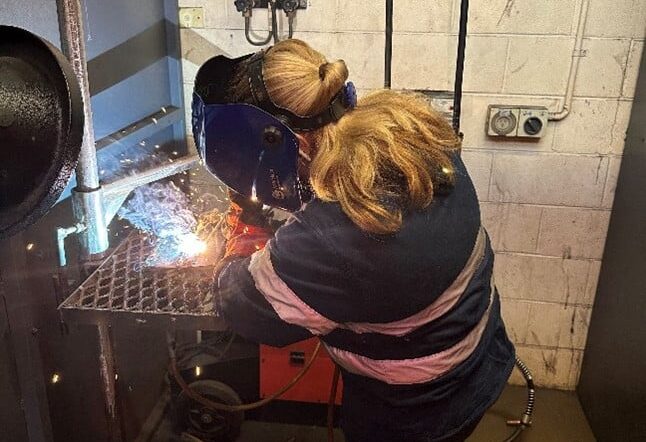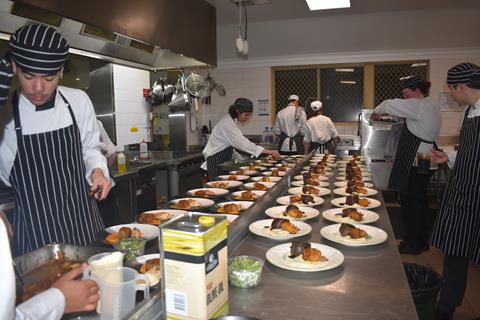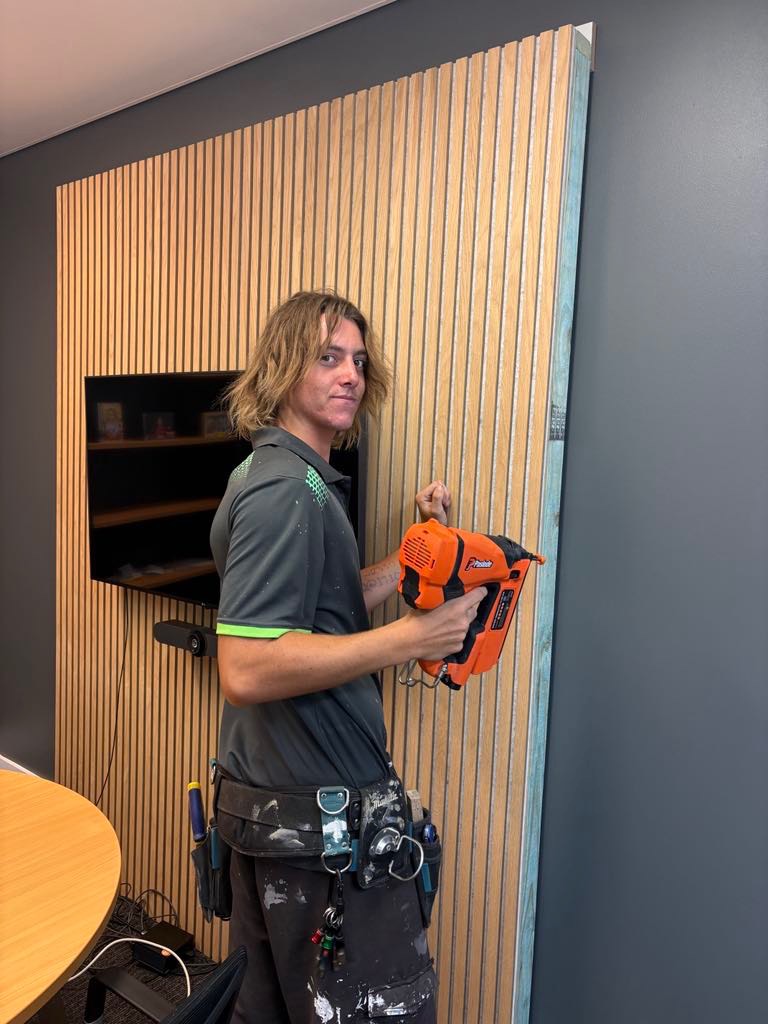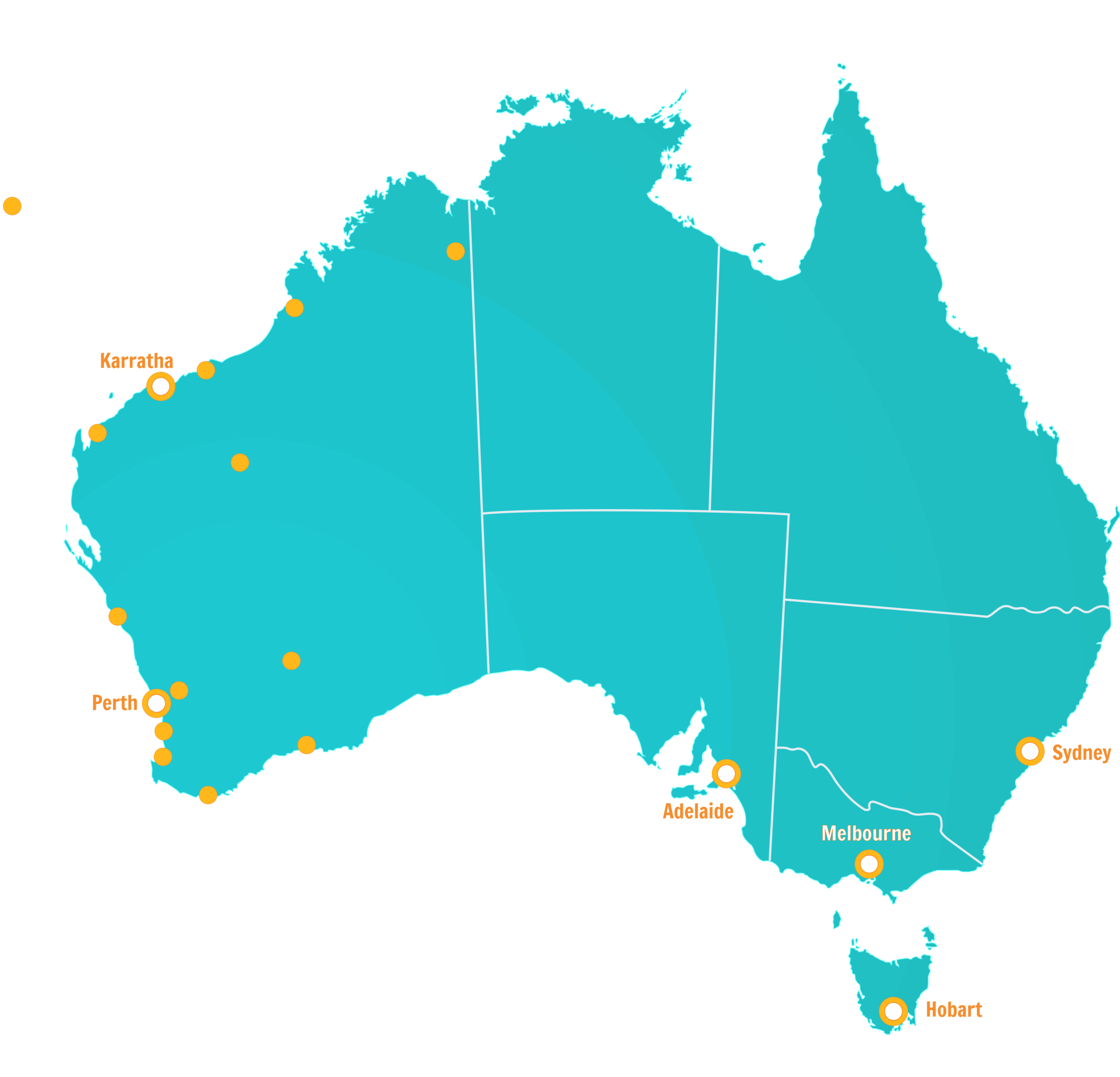For many people, working at a zoo is their dream job. That is the reality for seven Clontarf Aboriginal College students who are making an early and practical start towards their careers by studying a Certificate II in Conservation and Ecosystem Management with Perth Zoo.
The traineeship is part of Shoreline’s national program which supports Aboriginal and Torres Strait Islander high school students to gain qualifications and employment by facilitating partnerships between schools, training organisations and businesses or employers.


The students, who come from various regional communities across WA, started the traineeship in term one of 2023, with support from Apprenticeship Support Australia.
Ezra, from Kununurra, has already been offered a casual employment contract with Perth Zoo which he says was a “big surprise”.
“I gave it a shot and when I first started, I didn’t know what to do but now that I’m in the middle of it, I want to keep doing this. I really love working at the zoo,” he says.
“It’s definitely opened up new doors for when I’m out of school – different opportunities, different pathways.
“I feel like I’m more social and talkative now with new people and definitely have more connections and friends now. I feel more confident, more comfortable around here.”
India, from Broome, says working at the zoo has opened her eyes to career opportunities that she hadn’t considered before. 
“I’m thinking about going into the mines, so this is one step closer to going there because we need a land and conservation traineeship to go there,” she says.
Tavian, from Kununurra, says he’s “loving it” and enjoys trying something different.
“The parts that I really like [include] just getting up every morning and just going out. Make more friends and all that, get to know everybody better,” he says.
Once they complete their studies, many of the students plan to use their qualification to work on their home country, including Warakurna-born Pawuya who plans to follow in her grandmother’s footsteps.
“When I finish this, I want to become a ranger back home because they’re starting a ranger station next year,” she says.
Grassroots program shows success

Since its inception in 2009 on the Northern Territory’s Tiwi Islands, Shoreline’s program is proving successful. Based on the model developed after expanding into Cairns in 2018, 100% of students who leave school have obtained a job and after five years, 86% of those students are still employed.
“They’re big numbers with Indigenous kids,” says Guy Reynolds, Shoreline’s Chairman.
“We found them working two days-a-week, studying two days-a-week at school as they would traditionally do and keeping in contact with their friends, and then one day at TAFE working towards a Certificate II in sustainability, environment or marine has worked really well.
“Now we have a rare situation where there are more jobs than kids and these students [from the Clontarf Aboriginal College] are very much on that same path.”
Shoreline is an independent, privately-funded not-for-profit organisation that supports employers by funding the trainees’ wages.
“The student gets $150 a day for being employed while at school, gets the diverse education and the employer gets to see them while they’re at school. And if the employer likes them, they can bring them forward as an employee,” Reynolds says.
“We can provide the funding and we can provide the pathways for them with employment through influence of friends we know. But we haven’t got the holistic heart. And the holistic heart that the Clontarf Aboriginal College provides is outstanding.”

Located in Perth, the Clontarf Aboriginal College comprises about 170 students, of which half board. Principal Francis Haji-Ali says the program engages the students in a culturally-appropriate way.
“It’s about having authentic relationships and giving the students the opportunity to engage with job-ready activities that they can take anywhere, no matter where they come from, because our students come from so many different communities,” she says.
“So, whether they live in Perth or Kununurra, they can get a chance to do different things that they can take home with them.”
Cath Brand, Perth Zoo Manager, People and Business Services says much of the program’s success is due to its “individualised and flexible approach”.
“It’s all about the relationships that sit around these kids to make it succeed – that’s mentoring, it’s coaching, it’s having the right people that understand that you have to be flexible with the educational concepts,” she says.
Having meaningful impact

The students say their confidence has grown since they started the traineeship, and their teachers and manager at the zoo have noticed similar changes.
Aaron Semmens, Clontarf Aboriginal College VET Coordinator sees transformation in the students’ attitudes and maturity.
“The conversations they’re having these days and their presentation, the way they behave and the mannerisms of how they are developing into young people. Then there’s just the exposure in the work environment and that responsibility that they feel they need to work up to for their own personal values,” he says.
Semmens says it’s rewarding to see the students link their school and work experiences to developing job-ready skills.
“It’s very uplifting, because these kids, when they come to school, it’s something they can leave with,” he says.
“For them to take that away is valuable and it puts them in the race with everyone else and gives them life skills that they might not have got if they hadn’t done the traineeship.”
The zoo staff also say they notice a difference in the students’ demeanours, with Brand saying, “we have trainees who barely spoke and now some are confident to speak in a room full of people”.
 “And their self-advocacy – shy teenagers often won’t speak up for themselves if there’s a problem or if they need something to do the job a better way, but now they are confident they can do that,” she says.
“And their self-advocacy – shy teenagers often won’t speak up for themselves if there’s a problem or if they need something to do the job a better way, but now they are confident they can do that,” she says.
Perth Zoo is also learning from the students. Brand says along with the Aboriginal interpreters already employed at the zoo, the students are sharing cultural insights such as how each animal contributes to country and their richness within the community.
“There’s a lot of potential enrichment there, not just in knowledge, but also in community. The zoo is a community, and the students bring a different dimension to all of that,” she says.
The Perth Zoo traineeship is Shoreline’s second program in WA, after Exmouth in 2022. Each year about 80 Aboriginal and Torres Strait Islander young people benefit from the program. Since 2009, Shoreline has supported more than 500 Indigenous people to gain qualifications and employment.
Powered by CCIWA, Apprenticeship Support Australia (ASA), can facilitate employment, manage training and offer support and advice to companies seeking apprentices to boost their workforce. Contact ASA at [email protected] or phone 1300 363 831.







